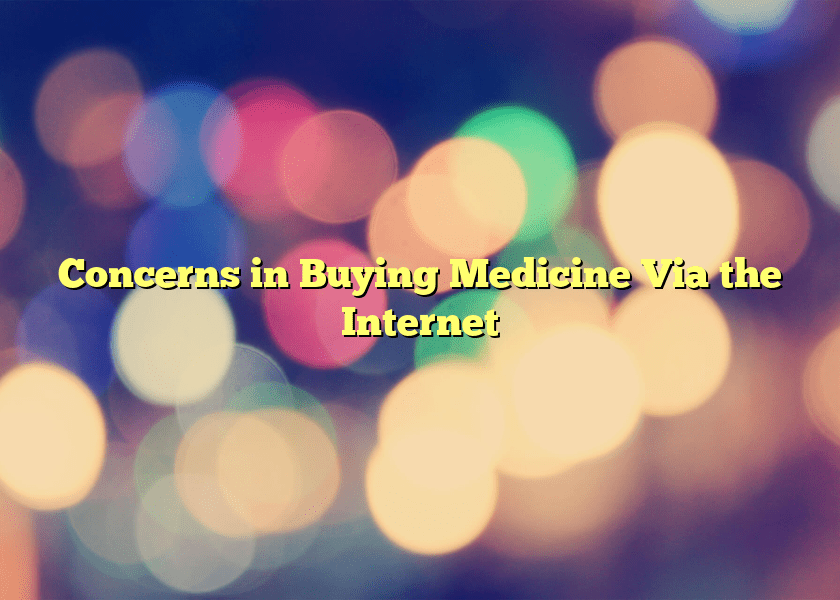Concerns in Buying Medicine Via the Internet
In the United States, the sale or distribution of drugs or medications via the Internet is not really a recommended means for consumers to purchase medicines. Online pharmacies sprouting on the Internet today are really favored by many people since these sites offer the most convenient ways to get medications, whether these are prescribed by doctors or not.
With this, many consumers are greatly in danger of taking unsafe and inappropriate medicines that can be bad for their health. In as much as the authorities want to protect consumers from these websites, becoming aware of the dangers involved in online shopping is still the best way for people to protect themselves from fraudulent pharmaceutical websites.
Becoming cautious when buying medicines on the Internet
Although ordering and buying medications on the Internet may sound easy, there are, in fact, certain issues involved in websites dealing with medicine distribution services. Yes, most pharmacies established on the Internet today are legal; meaning their operations and featured services really provide consumers privacy and convenience in getting their medications. There are, however, hoax websites that operate illegally. Consumers should definitely watch out for these sites. Rogue pharmaceutical websites may appear legal and convincing, but these are actually not operating by the law.
Determining which websites are safe and legal
Safe online pharmacies should be:
* Based on the United States.
* Registered or acknowledged by the state of board of pharmacy.
* Requiring consumers with prescriptions from registered doctors and health practitioners.
* Providing online consumers the necessary contact information for query purposes.
* Operating with an in-house pharmacist or physician to answer consumers’ questions regarding the medications they want to order and purchase.
* Operating with privacy and security grounds on the part of their offered services and target audience.
Illegal websites are:
* Unsure of their customers’ medical conditions.
* Sending medications or drugs that have unknown origin or history.
* Providing medications or drugs that are not associated with customers’ present health conditions.
* Allowing consumers to buy medication online without a prescription.
* Selling or distributing consumers’ personal information to third party entities.
Familiarizing with medicines sold online
When consumers purchase medications at illegally operated online pharmacies, they are likely to receive medications that are:
* not labeled, shipped, and stored properly
* not approved by FDA
* unsafe to use with other types of medications
* not developed or packaged at the right standard
Learning the possible dangers in taking counterfeit medications
When a consumer is new to purchasing medications on the Internet, he may end up getting counterfeit medicine at a hoax or fake online pharmacy. These counterfeit medications are the copycat versions or either generic or branded medicine products. Online consumers should know that counterfeit medications:
* may unable to treat the health condition the medication is intended to be used for
* may be contaminated
* may have the wrong types and amount of ingredients
* may lead to harmful side effects
* may be packaged in false or phony labels
* may either be too strong or too weak
* may not be packaged according to the prescribed safety standards
* may not acknowledged or approved by the United States’ Food and Drug Administration
